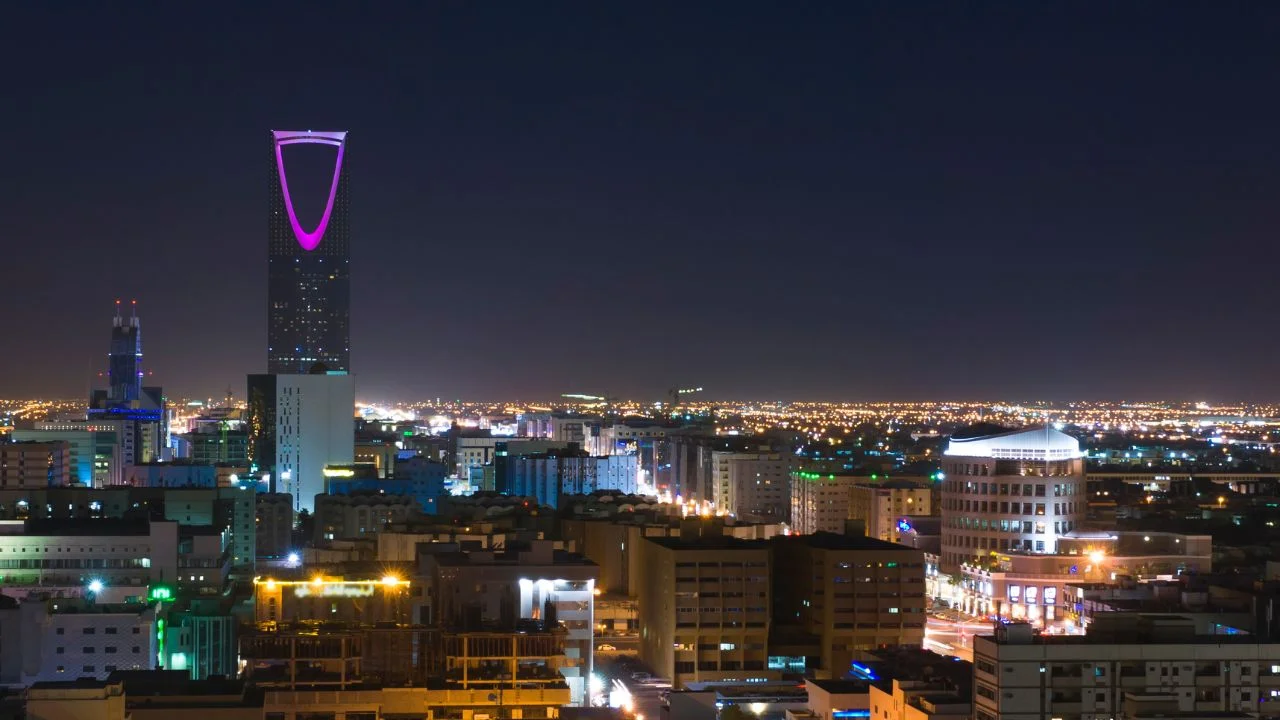
Why Partnering with a Global EOR Based Locally Can Benefit Your Business Expansion
27 May, 20259:38The Middle East and North Africa (MENA) region, particularly the Gulf Cooperation Council (G...

The Middle East and North Africa (MENA) region, particularly the Gulf Cooperation Council (GCC) countries, is experiencing an economic recovery that’s capturing the attention of many global investors. Nations like Saudi Arabia, the UAE, Qatar, and Bahrain are setting the pace with world-leading growth in oil and non-oil sectors, attracting companies in technical and engineering industries to expand operations in the region.
According to the International Monetary Fund (IMF), economic growth in MENA is projected to rebound to 3.6% in 2025, propelled by increased oil production, easing geopolitical tensions, and robust non-oil sector expansion. Saudi Arabia and the UAE rank among the world's fastest-growing economies, with KSA being the first in the region to reach a trillion dollars and the UAE experiencing remarkable growth outside the oil industry. (World Economic Forum).
Why are companies expanding in the Middle East?
With mega infrastructure projects, energy transitions, and a growing digital economy, the GCC is becoming a global hotspot for industries such as oil & gas, power, chemicals, and advanced technology. Saudi Arabia’s Vision 2030 and the UAE’s AI and R&D investments drive demand for highly skilled talent, while nations like Qatar and Bahrain demand a specialised workforce as they continue building in LNG and petrochemicals.
This promising outlook is encouraging business expansion across the region. The region's sector dominance is already attracting investments in AI and sustainability technologies, with 90% of GCC CEOs confident about revenue growth. Government initiatives promoting entrepreneurship and sustainability, combined with favourable demographics, such as a young, growing workforce, make the Middle East a top destination for launching new ventures - the UAE ranking 1st and Saudi Arabia ranking 3rd in GEM’s latest global entrepreneurship report. 70% of companies in the GCC expect to increase their headcount, with KSA leading this growth.

Middle East’s Labour Market: Trends, Migration, and Project Activity
With a focus on shifting away from oil, particularly in countries such as Saudi Arabia, non-oil sectors across the Middle East are prospering. According to ICAEW, the Kingdom anticipates 5.8% growth in non-oil sectors in 2025, while the UAE projects 4.8%, supported by ambitious infrastructure initiatives and digitalisation efforts. Bahrain is also expected to grow its non-oil economy by 3.1%, enabled by projects like the $6 billion Bapco Modernisation Programme.
Although the transition to non-oil sectors is becoming increasingly prominent, the oil market is also expected to rise gradually. OPEC+ group has decided to increase output, which will help GCC members regain market share and support stability in the oil market, with a projected growth of 3.2%. Participating countries—including Saudi Arabia, Iraq, the UAE, Kuwait, and Oman—will implement a production adjustment of 411,000 bpd in June 2025, compared to levels in May 2025.
Due to this expansion across all sectors, the labour market is developing just as quickly; however, the GCC’s workforce is unique. Expatriates make up the majority, with the UAE and Qatar’s expat population exceeding 88%. Migration trends are upward, driven by attractive compensation packages, family relocation opportunities, and world-class infrastructure. Saudi Arabia and the UAE, in particular, are now in competition to attract top global talent, leading to rising salaries and evolving benefit structures.
Project pipeline and country activity:
- Saudi Arabia: Massive infrastructure and energy projects through initiatives such as Vision 2030, with new expectations for oil production to reach nearly 13 mmbd capacity.
- UAE: Leading in digital transformation, AI, and renewable energy, with a higher oil production quota supporting sectoral growth.
- Qatar: LNG capacity expansion continues, with QatarEnergy LNG being the largest LNG producer in the world, aiming to raise capacity by 85% to 142 million (metric) tonnes by 2030.
- Bahrain: Economic Vision 2030 and major energy sector upgrades are designed to improve the economy and citizens' living standards.

Workforce Challenges in the Middle East
Despite growth, entering the Middle Eastern market isn’t without challenges, as the region has some of the world’s strictest workforce requirements. Businesses face complex labour laws, tax frameworks, onboarding and offboarding procedures, compensation compliance, and visa regulations. Labour reforms remain a top agenda item in countries like KSA, which enforce localisation initiatives such as Saudization to improve worker rights and mobility. While others like Qatar and the UAE maintain employment practices influenced by the legacy kafala system, introducing requirements such as minimum wage and setting standards for migrant workers.
The main pain points include:
- Labour law reforms: The kafala system, which ties migrant workers to employers, is being reformed, but still shapes the labour market for many GCC countries.
- Visa complexities:Obtaining visas and work permits remains challenging, with requirements varying widely between countries. Here are some examples:
- Nationalisation initiatives: Saudization in KSA and similar policies elsewhere require employers to meet specific quotas for local personnel.
- Compensation disparities: Salary benchmarking is critical, as nearly half of organisations cite compensation in neighbouring markets as a challenge in a report by Procapita Group. UAE-based businesses lead in generous benefits, but standards differ across the region.
These factors can create operational bottlenecks for businesses that want to relocate talent or enter the market without a strong local foundation.
The EOR Advantage: What is it and why does local expertise matter?
What is an Employer of Record (EOR)?
An Employer of Record (EOR) is a third-party employment company that legally hires personnel on your behalf and manages HR and legal processes. This includes issuing employment contracts, benefits, payroll, and ensuring visa and tax compliance. A global EOR with local expertise is invaluable for companies expanding into new markets. One of the primary benefits of using EOR services is the ability to initiate operations in a foreign country without the cumbersome and often time-consuming process of establishing a legal entity there.
Instead, the EOR essentially acts as a bridge, leveraging its established infrastructure and global mobility knowledge. Doing so facilitates a smooth entry into the market while ensuring that your company adheres to local employment regulations. This approach accelerates the timeline for establishing a presence in the new country, mitigates risk, and enhances operational efficiency.
Benefits of partnering with a global EOR based locally
- Speed to market – quick deployment of personnel without setting up a legal entity, ensuring you can capitalise on time-sensitive opportunities and efficiently meet business expansion goals.
- Local compliance – with in-country teams that combine local and global knowledge, EORs safeguard your company by complying with local tax laws, labour regulations, and nationalisation policies.
- Streamlined payroll & benefits – accurate, timely, and compliant payroll with access to local salary benchmarking and real-time compensation data for competitive hiring.
- Onboarding/offboarding – manages paperwork and recruitment processes, including contract documentation and termination procedures, ensuring seamless personnel transitions and reducing administrative burdens.
- Visa & mobility management – expert handling of all immigration requirements, correctly obtaining and processing the necessary visas and work permits.
- Risk mitigation – reduced exposure to penalties, misclassification issues, or legal non-compliance.
- Scalability – flexibly scale your workforce up or down as projects and business operations evolve.
Your local partner for Middle East expansion
NES Fircroft has decades of experience delivering workforce and technical solutions worldwide. As a trusted EOR, we act as the legal employer of your personnel, taking full responsibility for payroll, employment contracts, benefits, tax contributions, visa sponsorship, and compliance with local employment laws so that you can focus on project delivery.
We have supported some of the world’s most complex energy and infrastructure projects, successfully providing the most critical engineering personnel to businesses operating in the Middle East. Our EOR services are tailored for global mobility, ensuring smooth business expansion into even the most regulated labour markets.
Backed by an international framework, we have on-the-ground teams and operational expertise across the Middle East, including in:
If you’re launching a new project or planning to expand operations in the Middle East, we can ensure you meet every compliance standard while staying competitive in the race for talent.
Contact us today to discuss your business expansion goals.









